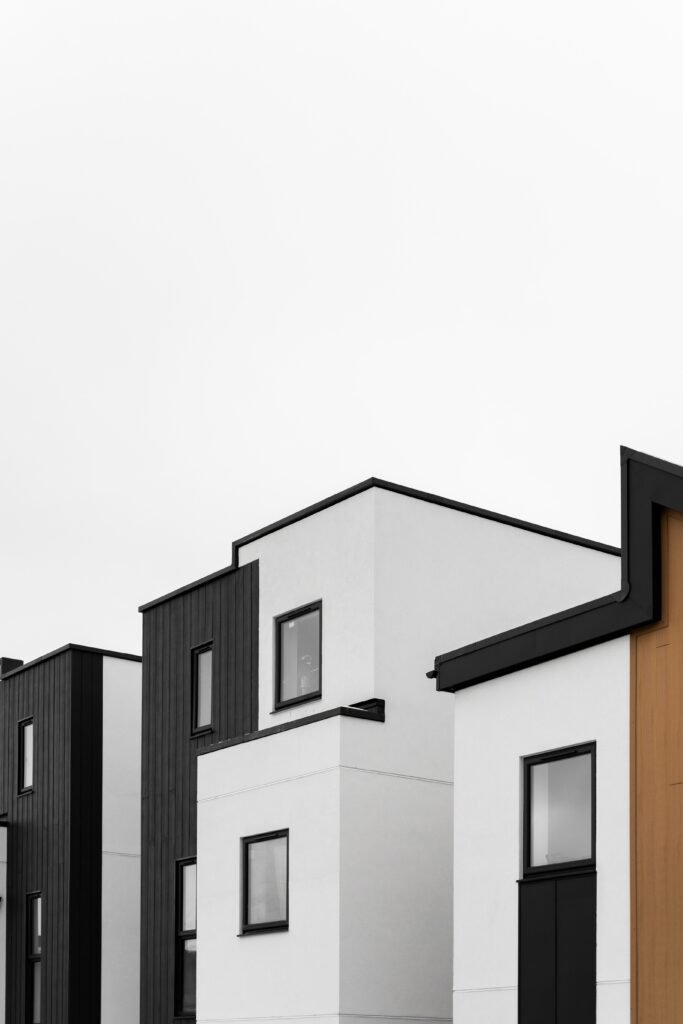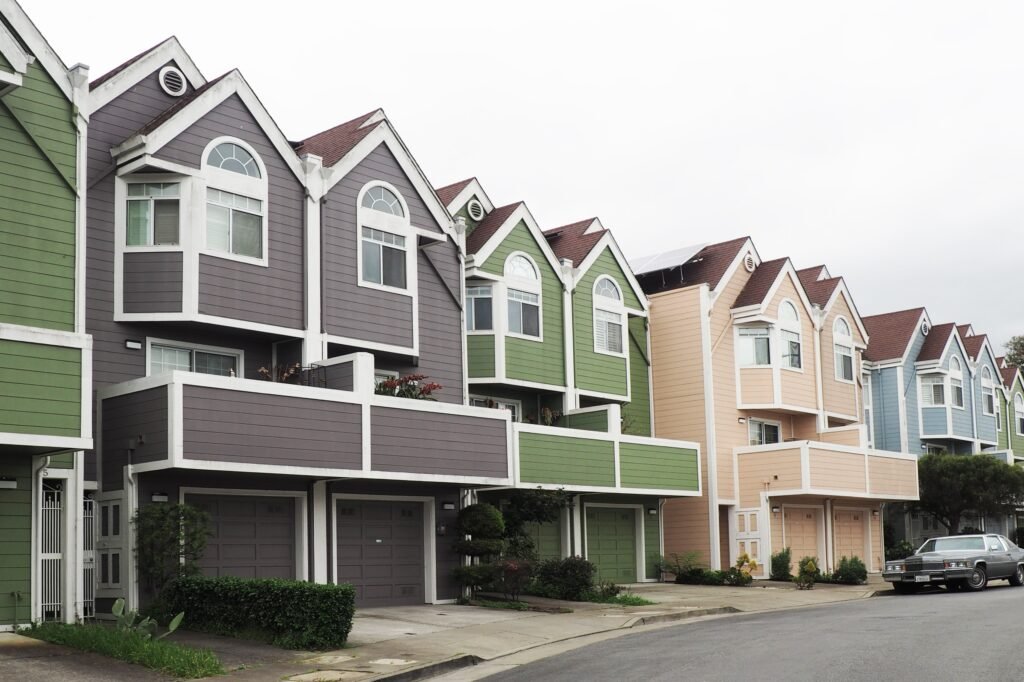Looking for affordable housing in South Africa? Look no further! This comprehensive guide is here to provide you with all the information you need to navigate the world of affordable housing in this beautiful country. Whether you’re a first-time buyer, a renter, or simply looking for options to suit your budget, this guide will walk you through the various housing programs, initiatives, and tips to help you find a comfortable and affordable home in South Africa. From government-subsidized housing to rent-to-own schemes, we’ve got you covered. Let’s get started on your journey to finding affordable accommodation in South Africa!

Understanding Affordable Housing
Definition of Affordable Housing
Affordable housing refers to residential units that are affordable to low- and middle-income individuals or families. These housing options are designed to be affordable in terms of rent or purchase price, as well as ongoing costs such as utilities and maintenance. The aim is to provide safe and decent housing for all, regardless of their economic status.
Importance of Affordable Housing in South Africa
Affordable housing plays a crucial role in South Africa, where there is a significant housing backlog, especially for low-income families. Access to affordable housing is essential for social stability, economic growth, and poverty alleviation. It helps to address the housing needs of the most vulnerable individuals and contributes to reducing inequality and fostering inclusive communities.
The State of Affordable Housing in South Africa
Despite efforts to improve access to affordable housing, South Africa still faces significant challenges in meeting the demand. There is a shortage of affordable housing units, particularly in urban areas where population growth and urbanization rates are high. Many low-income individuals and families are forced to live in informal settlements or inadequate housing conditions. It is essential to address these issues and work towards providing affordable housing for all.
Government’s Role in Affordable Housing
South African Government’s Housing Policies
The South African government has implemented several housing policies to address the affordable housing crisis. These policies aim to ensure that housing is accessible, affordable, and of good quality. The government acknowledges the need for collaboration between the public and private sectors to achieve sustainable affordable housing solutions. The policies also emphasize the importance of community participation and empowerment.
Government Residential Programmes
The government has established various residential programs to provide affordable housing options to different income groups. These programs include rental housing, homeownership opportunities, and support for upgrading informal settlements. Through these programs, the government aims to improve living conditions and ensure that all citizens have access to safe and decent housing.
The Housing Development Agency (HDA)
The Housing Development Agency (HDA) is a government agency responsible for unlocking and coordinating the delivery of affordable housing. It works closely with various stakeholders, including municipalities, provincial governments, and the private sector, to plan, facilitate, and implement affordable housing projects. The HDA plays a critical role in identifying suitable land for housing development and creating sustainable housing environments.
Integrated Residential Development Programme (IRDP)
The Integrated Residential Development Programme (IRDP) is an initiative aimed at developing integrated human settlements. The program focuses on providing affordable housing opportunities in well-located areas that offer access to essential services such as schools, healthcare facilities, and public transportation. The IRDP promotes social integration and aims to create sustainable communities.
People’s Housing Process (PHP)
The People’s Housing Process (PHP) is a community-driven approach to housing development. Through the PHP, communities are actively involved in the planning, design, and construction of their housing projects. This approach empowers communities and fosters a sense of ownership, creating sustainable and thriving neighborhoods.

Types of Affordable Housing in South Africa
Low-Cost Housing
Low-cost housing refers to housing units that are built with cost-effective materials and construction methods to make them affordable. These units are typically targeted at low-income individuals and families who cannot afford to enter the formal housing market. Low-cost housing options provide a basic level of comfort and enable families to have a place to call home.
Subsidised Housing
Subsidised housing is a form of affordable housing where the government provides financial assistance or subsidies to eligible individuals or families. These subsidies help reduce the cost of purchasing or renting a home, making it more affordable. Subsidised housing serves as a vital support mechanism for low- and middle-income households, enabling them to access secure and affordable housing.
Social Housing
Social housing is rental housing provided by non-profit organizations or social housing institutions. The rent charged for these units is based on a household’s income, ensuring that it remains affordable for low-income families. Social housing projects also often include supportive services such as childcare facilities, community centers, and skill development programs, promoting holistic community development.
Informal Settlements
Informal settlements, commonly known as shanty towns or squatter camps, are informal housing settlements characterized by inadequate living conditions and lack of basic services. These settlements often emerge as a result of rapid urbanization and housing shortages. In South Africa, the government is working towards upgrading informal settlements, providing better infrastructure, and improving living conditions for residents.
Community Residential Units
Community residential units are housing developments specifically designed for specific target groups, such as the elderly, people with disabilities, or vulnerable individuals. These units provide safe and affordable accommodation with support services tailored to the needs of the residents. Community residential units play a crucial role in promoting inclusivity and meeting the specific housing needs of different population segments.
Funding for Affordable Housing
Government Subsidies
The South African government provides subsidies to assist low- and middle-income individuals and families in accessing affordable housing. These subsidies can be in the form of financial grants or reduced interest rates on home loans. The government’s subsidy programs aim to bridge the affordability gap and make homeownership or rental housing more accessible for those in need.
Private Sector Funding
The private sector also plays a significant role in funding affordable housing projects. Private developers, investors, and financial institutions contribute capital and resources to develop affordable housing units. Public-private partnerships are established to leverage the expertise and resources of the private sector while ensuring that the housing projects align with the government’s affordability objectives.
Non-governmental Organisations (NGOs)
Non-governmental organizations (NGOs) are actively involved in funding and implementing affordable housing projects in South Africa. These organizations work towards addressing the housing needs of specific vulnerable groups and advocating for policies that promote affordable housing for all. NGOs often collaborate with government agencies, the private sector, and international donors to secure funding and support.
International Aid Donors
International aid donors and development agencies play a crucial role in supporting affordable housing initiatives in South Africa. These organizations provide financial assistance, technical expertise, and capacity-building support to improve the delivery and sustainability of affordable housing projects. Collaboration with international partners facilitates knowledge sharing and the adoption of best practices in affordable housing development.

Land Availability and Affordable Housing
Importance of Land in Affordable Housing
Land availability is a critical factor in the successful implementation of affordable housing projects. Access to well-located land enables the development of housing units in areas that offer proximity to essential amenities and economic opportunities. A strategic approach to land allocation and use is essential for ensuring the long-term sustainability and affordability of housing developments.
Land Redistribution in South Africa
Land redistribution is a critical component of the South African government’s efforts to address historical inequalities and promote social justice. The government has implemented land reform programs to redress the imbalances caused by apartheid-era policies. Land redistribution initiatives aim to provide equitable access to land for housing, agriculture, and economic empowerment, contributing to the overall goal of affordable housing for all.
Challenges with Land Availability
Despite the importance of land in affordable housing, there are challenges concerning its availability in suitable locations. Rapid urbanization, competing land uses, and limited land supply make it difficult for affordable housing developments to find suitable land. Inadequate infrastructure, such as water and sanitation services, in some areas further complicates the development process. Addressing these challenges requires collaboration between government agencies, communities, and other stakeholders.
Government Strategies for Improving Land Accessibility
The South African government has implemented strategies to improve land accessibility for affordable housing. These strategies include the identification and release of well-located state-owned land for housing development. Additionally, partnerships with municipalities, private landowners, and communities are established to facilitate land availability for affordable housing projects. These strategies aim to unlock land potential and ensure its efficient use for meeting the housing needs of the population.
Affordable Housing and Sustainability
Affordable Green Housing
Affordable green housing combines principles of affordability and sustainability, focusing on energy efficiency, water conservation, and environmentally friendly construction materials. Green housing designs help reduce utility costs, minimize environmental impact, and improve the overall quality of living for residents. Integrating sustainable practices into affordable housing projects contributes to long-term affordability and environmental sustainability.
Sustainable Development Goals (SDGs) and Affordable Housing
Affordable housing aligns with several Sustainable Development Goals (SDGs) set by the United Nations. These goals include ensuring access to adequate, safe, and affordable housing for all (SDG 11) and promoting sustainable development (SDG 13). By addressing the housing needs of the most vulnerable populations and incorporating sustainable practices, affordable housing projects contribute to achieving these global goals.
Community Participation in Sustainable Housing Development
Community participation is essential for the success and sustainability of affordable housing projects. Engaging residents in the planning and decision-making processes fosters a sense of ownership and empowers communities. By involving community members, housing projects can be tailored to meet their needs, preferences, and cultural considerations, leading to sustainable and thriving communities.

Challenges in Providing Affordable Housing
Economic Factors
Economic factors, such as high construction and land costs, affect the affordability of housing in South Africa. The cost of materials, labor, and infrastructure can make it challenging to develop housing units at affordable prices. It is necessary to explore innovative solutions and cost-effective construction methods to overcome these economic barriers.
Population Increase and Urbanisation
South Africa’s population growth rate and rapid urbanization contribute to increased demand for affordable housing. As more people move to urban areas in search of employment opportunities, the housing backlog continues to grow. Balancing urban expansion with sustainable and affordable housing solutions is crucial to meet the housing needs of the growing population.
Insufficient Infrastructure
Inadequate infrastructure, such as water supply, sanitation, and transportation, poses a significant challenge to the provision of affordable housing. Developing housing projects in areas without adequate infrastructure can result in additional costs and delays. It is essential to invest in infrastructure development concurrently with affordable housing initiatives to ensure the availability of essential services for residents.
Land and Construction Costs
The cost of land and construction materials is a significant factor in the affordability of housing. The limited availability of well-located and affordable land, coupled with rising construction costs, poses challenges to the provision of affordable housing. Exploring creative financing options, alternative construction methods, and engaging with stakeholders can help mitigate these cost-related challenges.
Funding Challenges
Securing adequate funding for affordable housing projects is a perpetual challenge. Limited government budgets, uncertainties in the private sector, and competition for funding from other sectors make it difficult to fund large-scale affordable housing developments. Diversifying funding sources, fostering partnerships, and exploring innovative financing models are essential to overcome these funding challenges.
Opportunities in Affordable Housing Industry
Involvement of Private Sector
The involvement of the private sector in affordable housing presents opportunities for innovative solutions and capital investment. Private developers, investors, and financial institutions can contribute their expertise and resources to develop affordable housing projects. Public-private partnerships offer a way to harness the strengths of both sectors and maximize the impact of affordable housing initiatives.
Technological Innovations in Construction
Technological advancements in the construction industry present opportunities to improve the efficiency and affordability of housing development. Innovations such as modular construction, 3D printing, and off-site manufacturing can reduce construction costs and accelerate project delivery. Embracing these technologies in affordable housing projects can enhance the quality, durability, and affordability of housing units.
Partnerships with International Organisations
Partnerships with international organizations and aid donors provide access to additional funding, technical expertise, and capacity-building support. Collaborating with international partners can help improve the delivery and sustainability of affordable housing projects. Sharing best practices, knowledge, and experiences from other countries can also contribute to the continuous improvement of affordable housing in South Africa.
Community-Based Housing Projects
Engaging communities in the development and management of affordable housing projects presents opportunities for empowering local residents and creating sustainable communities. Community-based housing initiatives, such as cooperatives or self-build projects, allow residents to actively participate in the decision-making process and take ownership of their housing. These projects can promote social cohesion, skills development, and long-term affordability.

Case Studies of Successful Affordable Housing
Nelson Mandela Bay Municipality Housing Project
The Nelson Mandela Bay Municipality in the Eastern Cape has implemented an affordable housing project aimed at addressing the housing needs of low-income households. The project includes the development of well-located housing units and the upgrading of informal settlements. The municipality, in collaboration with the private sector and NGOs, has made significant progress in providing safe and affordable housing options for the local population.
Joe Slovo Development, Cape Town
The Joe Slovo development in Cape Town is a successful example of integrated social, economic, and housing development. The project transformed an informal settlement into a well-planned community with affordable housing, schools, healthcare facilities, and economic opportunities. The development showcases the potential of community-driven initiatives and partnerships in achieving sustainable affordable housing solutions.
Cosmo City, Johannesburg
Cosmo City, located in Johannesburg, is a large-scale affordable housing development that has transformed a formerly vacant area into a thriving community. The project provides affordable housing options, schools, recreational facilities, and commercial spaces. Cosmo City demonstrates how strategic land use planning and community participation can create inclusive and sustainable neighborhoods.
Khayelitsha Affordable Housing Initiative
The Khayelitsha Affordable Housing Initiative in Cape Town focuses on providing affordable, quality housing for low-income families. The initiative has developed innovative housing models, including duplexes that accommodate multiple families on a single plot. By maximizing the use of available land, the project has increased housing density and affordability while maintaining the quality of housing units.
Improving the Future of Affordable Housing in South Africa
Increasing Government Funding
To address the affordable housing crisis, it is crucial to increase government funding for affordable housing initiatives. The government should allocate a larger portion of the budget to housing programs and explore innovative financing models to supplement existing funding sources. Adequate funding will enable the construction of more affordable housing units and the provision of support services for residents.
Improving Policies and Regulations
Continual review and improvement of housing policies and regulations are essential to ensure that they align with the evolving needs and challenges of affordable housing provision. Governments should streamline bureaucratic processes, promote transparency, and create a conducive regulatory environment for affordable housing development. Regular engagement with stakeholders and incorporating feedback into policy-making can lead to more effective and efficient housing programs.
Involving Stakeholders in Policy Making
Including all relevant stakeholders, such as communities, NGOs, private developers, and financial institutions, in the policy-making process promotes a sense of ownership and shared responsibility. Stakeholder involvement ensures that housing programs address the diverse needs and priorities of different population segments. Collaborative decision-making fosters innovation, social cohesion, and sustainable housing development.
Consistent Evaluation of Housing Programs
Implementing a consistent and comprehensive evaluation process is crucial to assess the impact and effectiveness of affordable housing programs. Regular evaluations can help identify strengths and weaknesses, determine areas for improvement, and guide future policy decisions. Monitoring the long-term impact of housing programs, such as social integration and economic benefits, is essential for continuous improvement and informed decision-making.
Promoting Sustainable Housing Development
Sustainability should be at the forefront of affordable housing initiatives. Governments, private developers, and communities should prioritize sustainable construction practices, energy-efficient design, and the use of renewable resources. Incorporating green building standards, promoting recycling and waste management, and providing access to public transportation contribute to the long-term sustainability and affordability of affordable housing projects.
In conclusion, affordable housing is a critical issue in South Africa, and the government, private sector, and various stakeholders must work together to address the housing needs of low- and middle-income individuals and families. Through a combination of government programs, innovative financing models, community participation, and sustainable development practices, it is possible to create inclusive and thriving communities with access to safe and affordable housing. By prioritizing affordable housing, South Africa can make significant strides towards reducing inequality, alleviating poverty, and promoting social and economic stability.
